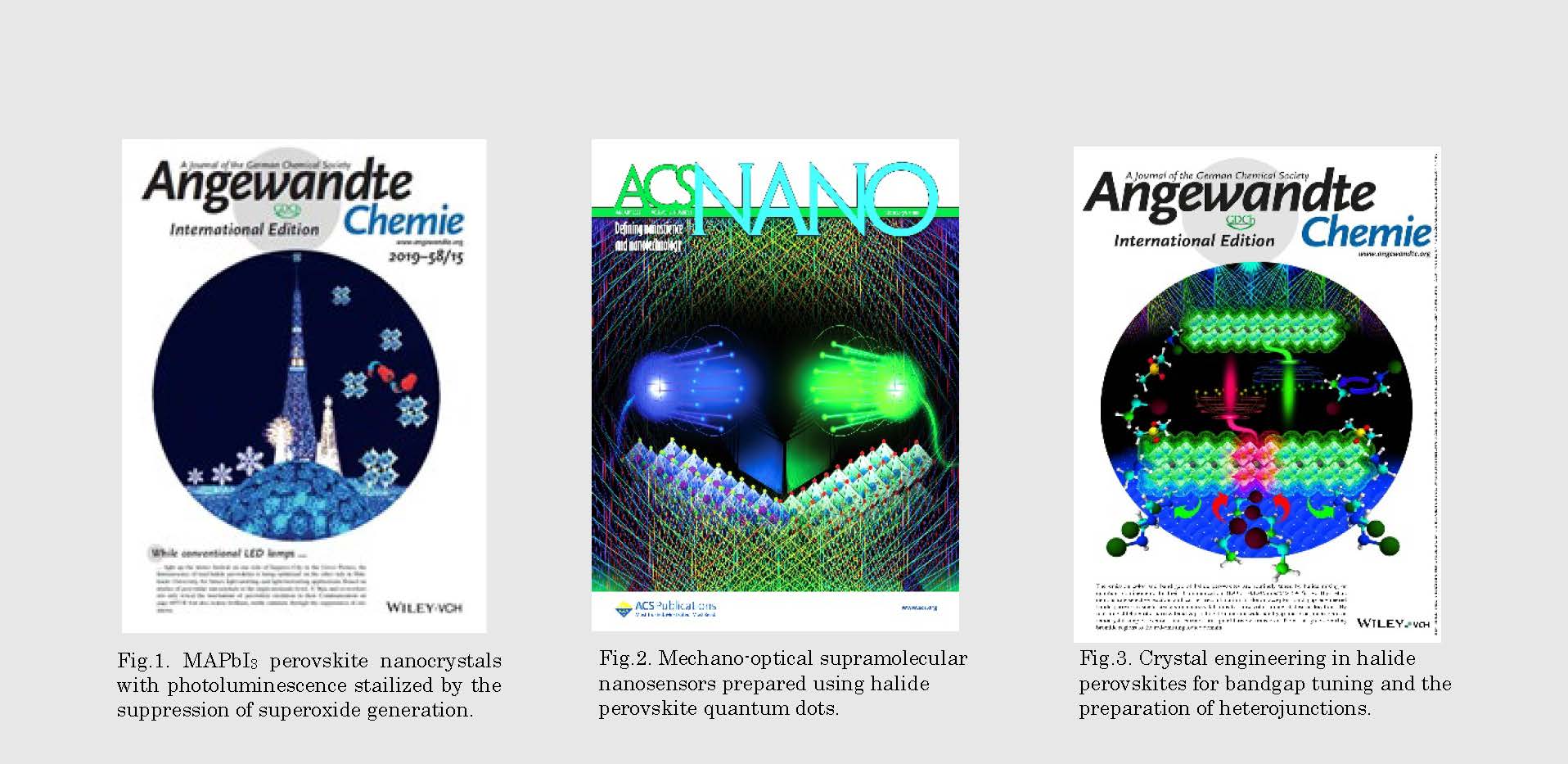
RIES
Research Institute for Electronic Science, Hokkaido University
北海道大学
電子科学研究所

LAST UPDATE 2021/06/07
-
研究者氏名
Researcher Nameビジュ・ヴァスデヴァン・ピライ BIJU Vasudevan Pillai
教授 professor -
所属
Affiliation北海道大学 電子科学研究所
物質科学研究部門 フォトニックナノ材料研究分野
Research Institute for Electronic Science, Hokkaido University
Material and Molecular Sciences, Laboratory of Photonic Nanomaterials -
研究キーワード
Research Keywords
Photochemistry
Physical Chemistry
Semiconductor Nanoparticles and Quantum Dots
Single-molecules
Electron and energy transfer
Molecular Sensors
- 研究テーマ
Research Subject -
Photonic Nanomaterials, Semiconductor Quantum Dots, and Sensor Molecules
研究の背景 Background of the Research
Metal chalcogenide quantum dots and metal halide perovskite nanomaterials emerge as a promising and cost-effective class of semiconductors for next-generation photoluminescent, electroluminescent and photovoltaic devices. These nanomaterials own high optical absorption coefficients and narrow-band bright photoluminescence, which are in addition to the composition-and size-dependent tunable bandgap, exciton binding energy, and carrier diffusion. However, these materials show size- and shape-dependent excitonic and carrier properties, which are in addition to stability issues and photoluminescence blinking, all due to defects and charging. Therefore, it is essential to classify the excitonic and carrier recombination mechanisms, along with crystal engineering and finding measures to suppress blinking and bleaching to develop high-quality quantum optical materials.
研究の目標 Research Objective
Semiconductor quantum dots, nanocrystals, and microcrystals with stable photoluminescence and electroluminescence have been developed by crystal engineering. The optical properties of these materials are analyzed microscopically and spectroscopy to unveil the origins of delayed carrier recombination, carrier trapping, charging, blinking, and bleaching. Random charging, blinking, and bleaching of metal chalcogenide quantum dots are suppressed by vacancy filling and photoinduced electron transfer. Also, bandgap tuning by crystal engineering and supercrystal assembling, the research advances to develop photonic, mechano-optical, electro-optical, and electro-mechanical nanosensors. Another aspect of the research is the development of photonic molecular sensors for cell biological and phototherapeutic applications.
研究図Figures

Fig.2. Mechano-optical supramolecular nanosensors prepared using halide perovskite quantum dots.
Fig.3. Crystal engineering in halide perovskites for bandgap tuning and the preparation of heterojunctions.
論文発表 / Publications
L. Chouhan, S. Ito, E. M. Thomas, Y. Takano, S. Ghimire, H. Miyasaka, V. Biju, ACS Nano 2021, 15, 2831.; Z. Zhang, S. Ghimire, T. Okamoto, V. Biju et al. ACS Nano 2022, 16, 160.
M. D. Shahjahan, T. Okamoto, L. Chouhan, B. M. Sachith, N. Pradhan, H. Misawa, V. Biju, Angew. Chem. Int. Ed. 2023, 62, e202215947.
研究者連絡先 / HP
- biju
 es.hokudai.ac.jp
es.hokudai.ac.jp - http://bijulab.main.jp/en/